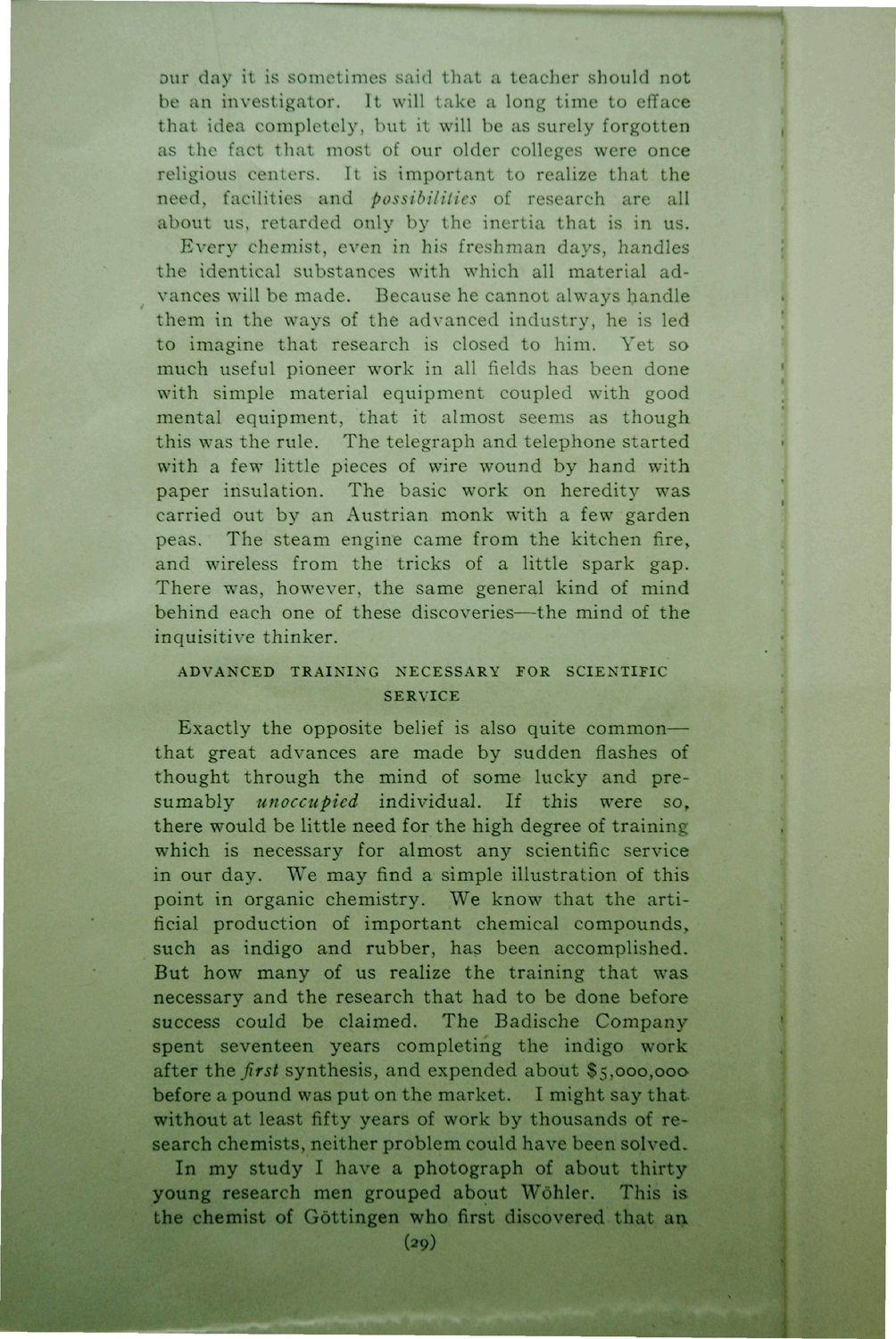| |
| |
Caption: Dedication - New Chemistry Building
This is a reduced-resolution page image for fast online browsing.

EXTRACTED TEXT FROM PAGE:
our day it is sometimes said that a teacher should not be an investigator. It will take a long time to efface that idea completely, but it will be as surely forgotten as the fact that most of our older colleges were once religious centers. It is important to realize that the need, facilities and possibilities of research are all about us, retarded only by the inertia that is in us. Every chemist, even in his freshman days, handles the identical substances with which all material advances will be made. Because he cannot always handle them in the ways of the advanced industry, he is led to imagine that research is closed to him. Yet so much useful pioneer work in all fields has been done with simple material equipment coupled with good mental equipment, that it almost seems as though this was the rule. The telegraph and telephone started with a few little pieces of wire wound by hand with paper insulation. The basic work on heredity was carried out by an Austrian monk with a few garden peas. The steam engine came from the kitchen fire, and wireless from the tricks of a little spark gap. There was, however, the same general kind of mind behind each one of these discoveries—the mind of the inquisitive thinker. ADVANCED TRAINING NECESSARY SERVICE FOR SCIENTIFIC Exactly the opposite belief is also quite common— that great advances are made by sudden flashes of thought through the mind of some lucky and presumably unoccupied individual. If this were so, there would be little need for the high degree of training which is necessary for almost any scientific service in our day. We may find a simple illustration of this point in organic chemistry. We know that the artificial production of important chemical compounds, such as indigo and rubber, has been accomplished. But how many of us realize the training that was necessary and the research that had to be done before success could be claimed. The Badische Company spent seventeen years completing the indigo work after the first synthesis, and expended about $5,000,000 before a pound was put on the market. I might say t h a t without at least fifty years of work by thousands of research chemists, neither problem could have been solved. In my study I have a photograph of about thirty young research men grouped about Wohler. This is the chemist of Gottingen who first discovered that an. (29)
| |